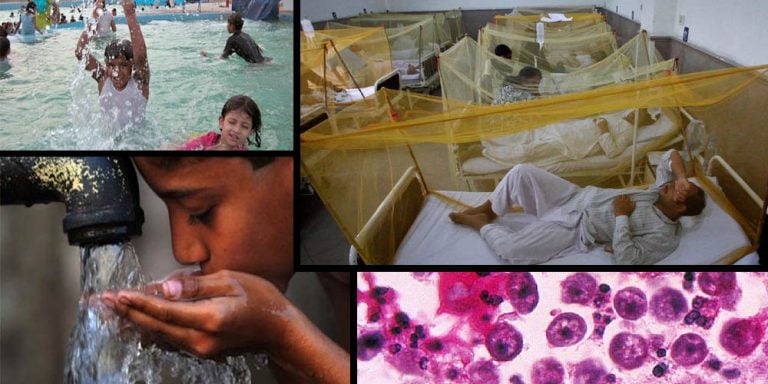The National Institute of Health (NIH) has a warning about a disease called Primary Amoebic Meningoencephalitis (PAM). It’s also known as Naegleriasis, Naegleria or brain-eating amoeba. This disease is very serious and affects the central nervous system.
From 2008, some hospitals in Karachi have reported deaths from PAM during the summer. The warning says that hot weather and water with low chlorine early in summer make the risk of Naegleria fowleri infection higher.
The warning is to make public health authorities, water and sanitation agencies, and others aware. They need to take steps to stop PAM, especially in places where it happens every year.
Naegleria fowleri can’t live in water that’s clean, cool, and has chlorine. Chlorine is the best way to clean swimming pools and water systems.
People are told not to jump or dive into warm, fresh water or thermal pools. They should also keep their heads out of water in spas, thermal pools, and warm fresh water. If someone has a small, foldable pool, they should empty and clean it every day.
Swimming pools and spas should have enough chlorine and be kept well. If someone uses water without chlorine, they should keep it out of their nose while bathing, showering, or washing their face.
To read our blog on “Naegleria fowleri kill 1 more person in Karachi,” click here
